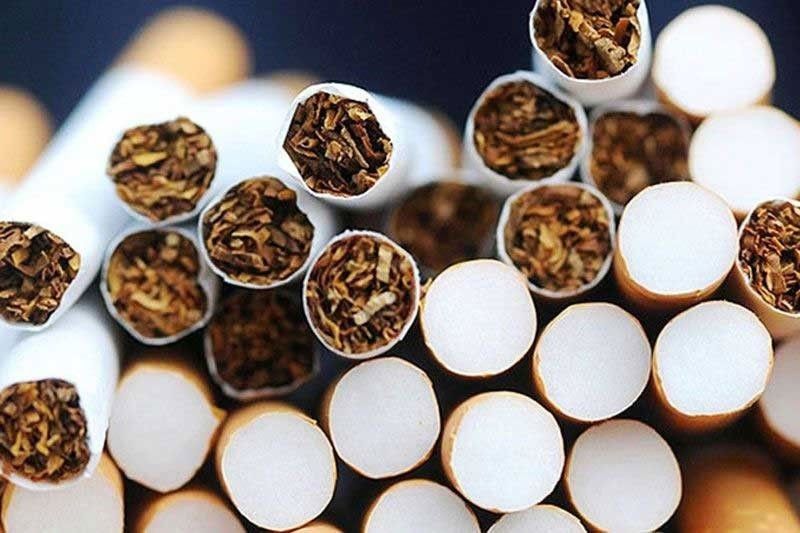War vs tobacco smuggling gets boost


Large-scale smuggling of tobacco and tobacco-based products including cigars, cigarettes and even heated tobacco products into the country is now considered as a non-bailable offense of agricultural economic sabotage.
This came after President Marcos signed into law Republic Act 12022 or the Anti-Agricultural Economic Sabotage Act which imposes harsher penalties for those convicted of agricultural smuggling, hoarding, profiteering and cartel activities. The new law repealed the old Anti-Agricultural Smuggling Act of 2016.
The old law did not include tobacco and tobacco products. RA 12022 now covers not only tobacco but also other agricultural and fishery products included in the old law such as rice, corn, beef, pork, poultry, vegetables and fruits, fish, palm oil, and sugar, among others.
RA 12022 defines smuggling as the fraudulent act of importing or bringing agricultural and fishery products into the country, or the act of assisting in receiving, concealing, buying, selling, disposing, storing, or transporting such products with full knowledge that the same have been fraudulently imported.
The crime of agricultural smuggling as economic sabotage is committed when the value of the agricultural and fishery products smuggled by a person is at least P10 million.
Agricultural smuggling is committed by (a) importing or bringing agricultural and fishery products into the country without the required import clearance from the regulatory agencies; (b) use of import clearance by persons other than those specifically named in the permit; (c) use of fake, false, fictitious, or fraudulent import clearance, shipping documents, or any other transport documents; (d) selling, lending, leasing, assigning, consenting to, or allowing the use by other persons of the import clearance; (e) misclassification, undervaluation, or misdeclaration upon the filing of import entry declaration or transport documentation to evade the payment of correct taxes and duties; (f) organizing or using dummy entities to acquire import clearance; (g) knowingly transporting or storing smuggled products; (h) acting as broker of the importer; (j) distributing, selling of a product which a person knows or should have known to have been imported through any of the above means; and (k) committing a third violation after two prior convictions of smuggling.
Mere possession or presence of agricultural and fishery products subject of smuggling in any fishport, fish landing site, resort, airport, Bureau of Customs (BOC)-controlled port, warehouse, cold storage, vessel, transport conveyance, and other storage areas shall constitute prima facie evidence of agricultural smuggling as economic sabotage.
The new law also considers agricultural hoarding, profiteering, and engaging in cartel activities as economic sabotage. Those financing agricultural economic sabotage crimes are also penalized under RA 12022.
The penalty of life imprisonment and a fine five times the value of the products subject of the crime shall be imposed on persons who commit agricultural smuggling, hoarding, profiteering, engaging in cartel, and financing agricultural economic sabotage crimes. The registered owner and charterer of vessels, land transport vehicles which transports the smuggled products, the owner and lessee of the facility where the products are stored, and the owner, lessee and top official of the port, resort, airports, fish landing site who allows the entry of these products shall be penalized with imprisonment of 20 to 30 years and a fine thrice the value of the product subject of the crime.
Even the driver, warehousemen, truck helpers, clerks who knowingly participate in the commission of the crime are subject to imprisonment of two to four years.
Government personnel who commit economic sabotage, knowingly abet or aid in its commission, prevent the filing of a case or its prosecution or the arrest of the suspect, or commits corrupt practices to facilitate agricultural economic sabotage shall be penalized with life imprisonment and fine five tines the value of the product, perpetual disqualification from holding public office, among others.
As the law comes into full effect, it is crucial for law enforcement agencies and the public to remain vigilant. Enforcement must be holistic and forceful from day one when a criminal act is exposed to the day that the agricultural crime is tried in court and the culprits sent to jail. Consumers, on the other hand, must recognize that purchasing illicit products fuels criminal activities that harm the nation.
The new law also provides a framework for more stringent cooperation between law enforcement agencies, including the BOC, the Bureau of Internal Revenue and the Philippine National Police. This heightened coordination will help reduce corruption and incompetency, which often allow smugglers to evade penalties.
The government loses an estimated P60 billion to P100 billion annually from tobacco smuggling alone. By tightening enforcement and imposing higher penalties, we might be able to finally recover lost tax revenue, providing a much-needed boost to public coffers, especially during the country’s post-pandemic recovery.
Tobacco smuggling doesn’t just steal from the government; it also hurts legitimate businesses. Licensed tobacco producers and retailers lose billions of pesos in potential sales. Industry experts believe that this law will help level the playing field, ensuring that businesses operating legally aren’t undercut by criminals.
They also emphasized that tobacco smuggling isn’t a localized problem; it’s a global issue tied to international crime syndicates. This law encourages greater collaboration with global authorities and organizations, positioning the Philippines as a serious player in the global fight against the illicit tobacco trade.
Meanwhile, JTI Philippines general manager John Freda said that this law sends a strong message to smugglers and their accomplices of the government’s serious commitment to address the worsening problem of illicit trade in tobacco, with the government now having an additional potent weapon in its arsenal to wage war against smuggling syndicates.
Freda also stressed that tobacco smuggling is indeed an act of economic sabotage because it not only deprives government of much needed tax revenues but also cheats everyone: society, consumers and legitimate businesses, adding that proceeds from illegal tobacco sales often finance much larger criminal activities such as corruption, smuggling of drugs and weapons, human trafficking, and terrorism.
For comments, e-mail at [email protected]
- Latest
- Trending



























